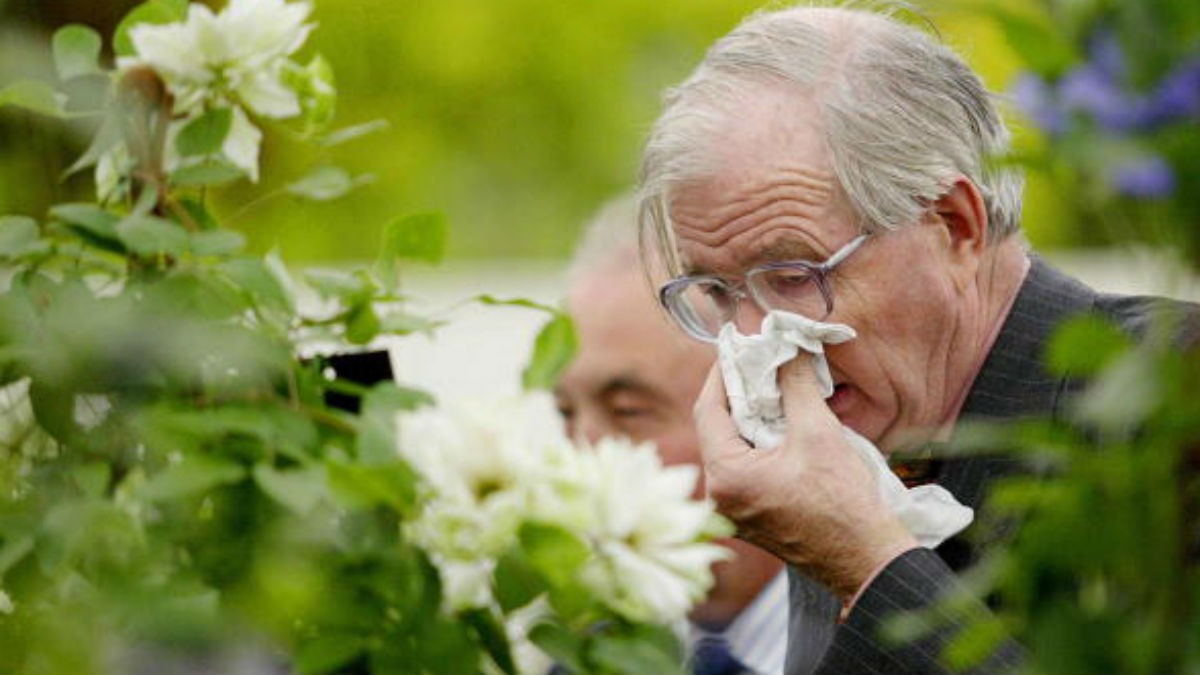Tips for reducing hay fever symptoms
One in five people in the UK is thought to suffer from hay fever, and the bad news is there's no cure for it and you can't prevent it

A free daily email with the biggest news stories of the day – and the best features from TheWeek.com
You are now subscribed
Your newsletter sign-up was successful
Sometimes summer has the British public sneezing and wheezing like its the week before Christmas.
But unlike the common cold which usually goes away after one to two weeks, hay fever can stick around for weeks or months and depending on the pollen forecast its intensity can vary.
Pollen season “typically starts in mid-March through to September but can start as early as January and end as late as November, separating into three main sections”, says ITV News.
The Week
Escape your echo chamber. Get the facts behind the news, plus analysis from multiple perspectives.

Sign up for The Week's Free Newsletters
From our morning news briefing to a weekly Good News Newsletter, get the best of The Week delivered directly to your inbox.
From our morning news briefing to a weekly Good News Newsletter, get the best of The Week delivered directly to your inbox.
Unfortunately for 20% of the UK that suffer from it, there's currently no cure for hay fever and it can't be prevented.
There are however several things you can do to ease the symptoms and many things to avoid doing to stop them getting worse when the pollen count is high.
After you've been to your pharmacist or GP for advice on the best treatments, such as antihistamine tablets, drops or sprays, here are some other tips to try.
Wash wash and wash again
A free daily email with the biggest news stories of the day – and the best features from TheWeek.com
The key is to wash your hands often, according to the NHS website. On high-pollen days, also make sure you shower and wash your hair when you get home, since pollen is very good at collecting on your skin, hair and clothes throughout the day. Do also make sure to wash bed sheets weekly in hot water.
Avoid dairy, sugar and alcohol on bad days
Dairy products and sugary foods can exacerbate common hay fever symptoms such as nasal congestion, because they increase the production of mucus in the respiratory tract.
Alcohol should also be avoided as “beer, wine and spirits contain histamine, the chemical that sets off allergy symptoms in the body”, says the BBC.
But do eat pineapples and apples
Eating more pineapple, apples and marshmallow root can help manage your symptoms.
That's because certain foods have natural anti-histamine or anti-inflammatory properties.
Holland & Barrett nutritionist Emily Rollason told The Sun: “Pineapples contain an enzyme called bromelain that has natural anti-inflammatory properties and has been traditionally used to aid with inflammation in the sinuses, which can be linked to hay fever.”
“Some plant-based foods such as quinoa, onions, tomatoes, apples and grapes are rich in a phytochemical called quercetin, which has natural anti-histamine properties.”
Watch the clock
On a typical high-count day - dry, warm and sunny - at this time of year, the first half of the morning and later in the afternoon until late evening are the times to avoid being outside.
Beverley Adams-Groom, pollen expert and forecaster from the University of Worcester, says pollen gets caught up in air currents and rises up away from nose level during the day.
“When it's very warm during the day, the pollen don't come down until the middle of the night, giving people a terrible night,” she told the BBC.
Vaseline and sunglasses may hold the key
It may not look pretty but using vaseline in your nostrils and wearing wrap-around sunglasses are a sure-fire way to stop the pollen from getting to affected areas like your eyes and nose.
But don’t rub your eyes – it makes them puffier and spreads the allergen which increases the problem and as soothing as it feels, avoid putting water in your eyes – that just spreads the allergens around the eye.
-
 Quiz of The Week: 14 – 20 February
Quiz of The Week: 14 – 20 FebruaryQuiz Have you been paying attention to The Week’s news?
-
 The Week Unwrapped: Do the Freemasons have too much sway in the police force?
The Week Unwrapped: Do the Freemasons have too much sway in the police force?Podcast Plus, what does the growing popularity of prediction markets mean for the future? And why are UK film and TV workers struggling?
-
 Properties of the week: pretty thatched cottages
Properties of the week: pretty thatched cottagesThe Week Recommends Featuring homes in West Sussex, Dorset and Suffolk